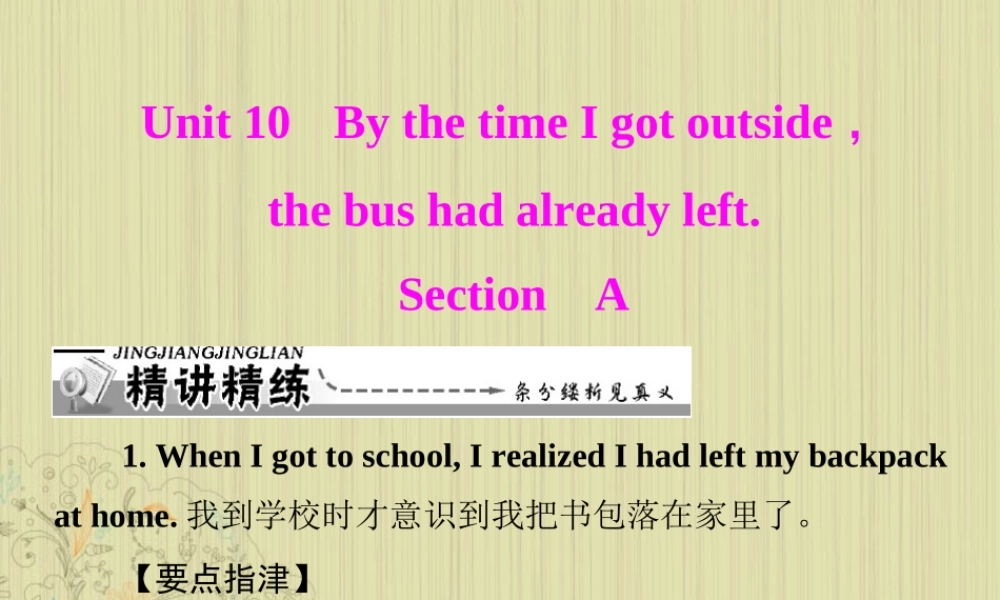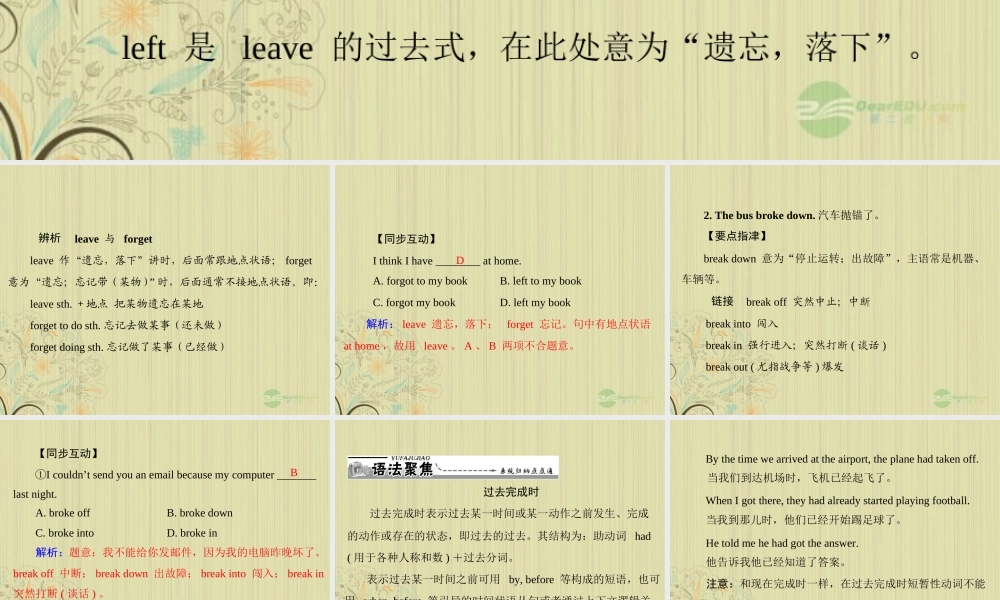Unit 10By the time I got outside ,the bus had already left.SectionA1. When I got to school, I realized I had left my backpackat home. 我到学校时才意识到我把书包落在家里了。【要点指津】left 是 leave 的过去式,在此处意为“遗忘,落下”。辨析leave 与 forgetleave 作“遗忘,落下”讲时,后面常跟地点状语; forget意为“遗忘;忘记带 ( 某物 )” 时,后面通常不接地点状语。即:leave sth. +地点 把某物遗忘在某地forget to do sth. 忘记去做某事 ( 还未做 )forget doing sth. 忘记做了某事 ( 已经做 )【同步互动】DI think I have ________ at home.A. forgot to my bookC. forgot my bookB. left to my bookD. left my book解析: leave 遗忘,落下; forget 忘记。句中有地点状语at home ,故用 leave 。 A 、 B 两项不合题意。2. The bus broke down. 汽车抛锚了。【要点指冿】break down 意为“停止运转;出故障”,主语常是机器、车辆等。链接break off 突然中止;中断break into 闯入break in 强行进入;突然打断 ( 谈话 )break out ( 尤指战争等 ) 爆发【同步互动】①I couldn’t send you an email because my computer _______last night.BA. broke offC. broke intoB. broke downD. broke in解析:题意:我不能给你发邮件,因为我的电脑昨晚坏了。break off 中断; break down 出故障; break into 闯入; break in突然打断 ( 谈话 ) 。②1914 年第一次世界大战爆发。The World War ________ ________ in 1914.Ⅰbrokeout过去完成时过去完成时表示过去某一时间或某一动作之前发生、完成的动作或存在的状态,即过去的过去。其结构为:助动词 had( 用于各种人称和数 ) +过去分词。表示过去某一时间之前可用 by, before 等构成的短语,也可用 when, before 等引导的时间状语从句或者通过上下文逻辑关系表示。如:By the time we arrived at the airport, the plane had taken off.当我们到达机场时,飞机已经起飞了。When I got there, they had already started playing football. 当我到那儿时,他们已经开始踢足球了。He told me he had got the answer.他告诉我他已经知道了答案。注意:和现在完成时一样,在过去完成时...


